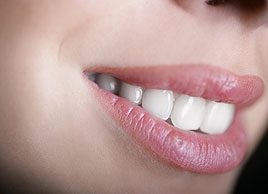Natural home remedies: Chapped lips
Do low temperatures’and other less-than-favourable conditions’make your lips dry and chapped? It happens to all of us, but we can beat it, too, with these easy home remedies

Source: Adapted from 1,801 Home Remedies, Reader’s Digest Canada
It’s one of the few flaws in our otherwise almost-perfect design: Our lips, so exposed to sun, wind, and other irritants, don’t have oil glands to keep them soft and moist. Nor do they contain much melanin, the pigment in our skin that turns us tan and offers some protection from the sun. It’s no wonder that lips can get as parched and cracked as old shoe leather. If you want to keep them kissable, give them some protection.
Bring out the balms
- Dairy farmers use Bag Balm to keep their cows’ udders soft and comfortable. Humans have found that this product, formulated with lanolin and petrolatum (the stuff in petroleum jelly), soothes a chapped kisser. You can find it in drugstores or order it on the Internet.
- Another all-natural salve is Burt’s Beeswax Lip Balm, which contains beeswax, coconut oil, sweet almond oil, lanolin, vitamin E, peppermint oil, and comfrey extract.
- When you’re alone in the house, olive oil or Crisco will help to soften and moisturize chapped lips quite nicely. In fact, any vegetable shortening will do.
- If you have vitamin E capsules on hand, puncture one and apply the oil to your lips.
- Petroleum jelly is a tried-and-true chapped-lips remedy.
- For more drugstore buys, check out our slideshow of top lip treatments.
Moisturize lips from the inside out
- If your lips are continually chapped, drink eight 250-mL glasses of water a day—more, if you can. While this won’t prevent dryness, it will keep it from getting worse.
The power of prevention
- Apply a balm with a sun protection factor (SPF) of at least 15 before you go out into the sun. Lips need just as much sun protection as the rest of your skin. (Off-limits…if your lips turn red and itchy. Some people have an allergic reaction to lip balms that contain sunscreen.)
- A dark, creamy lipstick helps protect lips from the sun and keep moisture in.
- When indoor air is very dry, prevent chapped lips by running a humidifier in your bedroom while you sleep.
- Try eating more foods that are rich in vitamin B, such as whole grains, nuts and green vegetables. Lack of B vitamins contributes to chapped lips in some people.
- Avoid licking your lips. Your saliva may momentarily provide a coating of moisture, but it evaporates quickly, leaving lips drier than before. And the saliva contains digestive enzymes that dry out tissue.
- Stay away from balms that contain phenol or camphor. They’re very strong antiseptics that induce a major lip drought.
- Don’t give a child lip balms with exotic flavors. Kids tend to eat the flavored varieties right off their lips, which further aggravates the chapping.
Don’t miss out! Sign up for our free weekly newslettersand get nutritious recipes, healthy weight-loss tips, easy ways to stayin shape and all the health news you need, delivered straight to yourinbox.




